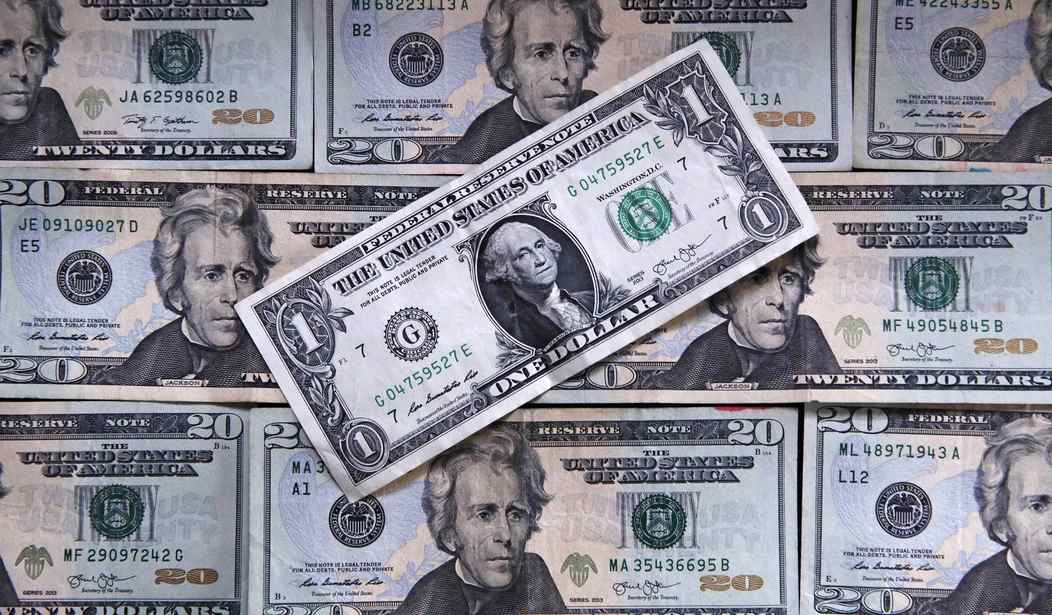Cash isn’t just for strippers and drug dealers anymore. These days, it’s the only form of fiat currency that enables any semblance of privacy or economic autonomy.
To remedy the issue and usher the sheep onto the digital plantation, you may have noticed the multinational corporate state’s overwhelming push for the popular adoption of central bank digital currency (CBDC) as the primary form of fiat money.
Via Investopedia:
Traditionally, fiat money came in the form of banknotes and coins, but technology has allowed governments and financial institutions to supplement physical fiat money with a credit-based model in which balances and transactions are recorded digitally…
CBDCs would require an appropriate amount of intrusion by authorities* to monitor for financial crimes; monitoring is also important because it supports efforts to combat money laundering and the financing of terrorism. (emphasis added)
*Of course, the government will be left to determine what constitutes an “appropriate amount of intrusion.”
As always, with any new piece of technology that centralizes control in the hands of a single authority, the justification for CBDC is convenience and authority: “The main goal of CBDCs is to provide businesses and consumers with privacy, transferability, convenience, accessibility, and financial security.”
Unfortunately, if the COVID lockdown, masking, and vaccine melodrama taught us anything, it’s that enough of the lobotomized zombie population will comply to make the CBDC project viable.
The authorities have tried out numerous justifications for moving away from cash in favor of digital currency.
“Can going cashless prevent coronavirus spread?,” CNBC asked rhetorically at the outset of the pandemic, deferring to the trusted Public Health™ demigods at the WHO for authoritative guidance. The WHO-supplied answer, of course, was yes! Governments issued guidance as a result, cautioning that “SARS-CoV-2 (the virus that causes the disease COVID-19) can survive on surfaces like dollar bills.”
Doubtless, there are Branch COVIDians who will never touch a dollar bill ever again as long as they live because the news told them it would kill them and their grandma.
Other anti-cash narratives appeal to the audience’s well-conditioned fear of terrorism — the boogeyman of choice for the corporate state prior to 2020:
The motive for establishing a CBDC based on promoting national security and avoiding the financing of illicit activities such as money laundering and terrorist financing have been put forward …
CBDC would allow the banking supervisor to fight more effectively against money laundering, terrorist financing and other illegal actions.
Are you noticing a theme — the strategic use of the permanent emergency du jour (first terrorism then COVID) to produce versatile matching rationales to ban cash? “Never let a good crisis go to waste,” as the mantra goes.
And, of course, Social Justice™ identity politics inserts itself into the narrative. Via PBS:
Black Americans, Latinos and poorer people are more likely to be without access to banking. The most common reason given was that no one in the household had enough funds to meet the minimum deposit requirements….
In this space, you could imagine the creation of a central bank digital currency – as opposed to something like bitcoin – might have a positive impact.
You see, further centralizing economic control in the hands of a tiny technocratic elite is really just an exercise in liberal and loving diversity, Our Greatest Strength™!
Nod your head, racist.
The centralized digital money revolution is already upon us. During the Canadian Freedom Convoy protests for medical freedom last winter, the Trudeau government unilaterally and systematically froze the accounts of anyone suspected of supporting the movement with zero legal accountability or due process whatsoever.
Businesses announce plans to go cashless on a daily basis now. Forty-one percent of Americans are fully cashless, leaving behind a complete digital footprint of their entire economic activity that can be mined to further enhance social control measures (not to mention generate enormous profit for the big data firms that traffic in this kind of information).
The Chinese government — the one that’s the envy of the Western technocratic world — has been on the cashless bandwagon for decades now. Self-professed CCP “basic dictatorship” admirer Justin Trudeau and his WEF comrades are merely catching up with the times.
The bottom line is that if the government and the corporate interests that control the government are permitted to access your entire economic history at the click of a button, your freedom is either lost already or it’s well on the road to oblivion.
Solutions?
Bitcoin and potentially other cryptocurrencies are great possible solutions, but they have practical problems with everyday transacting that make them currently inefficient as wholesale replacements for cash.
If and when our overseers succeed in flushing out all the cash payment systems, we might be forced to go back to the barter system for a time before an alternative hard currency system or digital currency that protects privacy can be developed.
In the final analysis, all is not lost. COVID-19, while it ushered in a new wave of unprecedented government abuse of power, also paradoxically poured gasoline on the populist resistance movement. Growing grassroots defiance is fueling the growth of organized political movements to oppose every facet of the technocrats’ agenda, including the CBDC scam.










